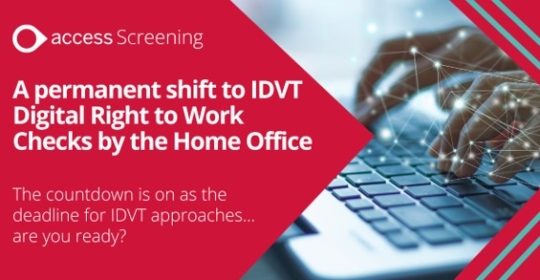One of the most common phrases you’ll hear repeated around the workplace is that we’re ‘singing from the same hymn-sheet’ and in the case of your recruitment business, your clients, candidates and staff should all be singing your praises in unison. Candidate experience affects employee engagement, and employee engagement affects organisational performance. 78% of candidates state that they would refer a company when met with a positive experience1. Engaged employees have 6% higher profit margins2. 19% of clients will lose trust in a company after just one negative experience3. Every individual that comes into contact with your recruitment business plays a key part in the overall reputation of your company. Clients, candidates and team members have the power to make or break a business and there are a number of explanations as to why.
For Clients
- Positive experiences create loyal clients: 67% of clients state negative experiences as the reason they leave the brand. Ultimately, the client simply wants to be taken care of, and if your company is not putting their needs down as priorities they are likely to look for another company who will.
- Client confidence is the best defence against the competition: Deliotte report that 62% of companies see a positive customer experience as a competitive differentiator4.
- Clients talk: 30%l of cients are likely to share a bad company experience with others5. In 2017 United Airlines suffered a lost $1.4b in value after a passenger’s negative experience with them went viral.6 There are so many channels for individuals to communicate and share right now, therefore presenting a positive company experience to your clients is imperative.
For Candidates
- Poor experiences send candidates packing: if candidates are met with a poor experience, The Talend Board reports that 41% of them will take their loyalty to a competitor7 and 22% of them would tell others not to work or apply there8. However, the same research states that 62% of candidates who are met with good recruitment experiences would apply with the company again.
- Candidates hold the power: in today’s climate, as important as it is for the candidate to impress the company within the recruitment and selection process, it is perhaps even more important for the company to create a positive first impression for the candidate. Job seekers can and will say ‘no’, and research states that people who are satisfied with their candidate experience are 38% more likely to accept the company’s job offer9.
- Candidates met with a positive experience are more likely to be invested in the company’s success: if candidate experiences are positive then if offered a job, they apply 15% more discretionary effort and are 38% more likely to stay with the company.
For Team Members
- Higher employee engagement equals harder working team members: Fear & Chiron famously stated in The Evaluation Interview (2002) that ‘To be competitive, a business must learn to utilise the untapped creative potential of the most powerful weapons it has – its employees’. In the current recruitment business climate competition is strong, and research has shown that companies with engaged employees outperform those with low employee engagement by 202%10.
- Satisfied team members refer potential candidates: employee referrals are known to have the highest ROI of all recruitment methods. If your team members are satisfied with the experience within your company, then they are more likely to not only participate in referrals, but also to be invested in your company’s success. Employee referrals are also quicker and less expensive to hire11.
- Lower rate of turnover: experience matters to team members. 17% of employees within the UK are looking to leave their job – the second highest figure in the world. However, research has shown that team members are 38% more likely to stay with a company if they’ve had a positive hiring experience12.
If experience hasn’t taught you just how important experience is, the numbers certainly will. In a time of big data and information, we have to rely on the figures in front of us to make better, more informed decisions that help our recruitment agencies, after all, one of the greatest perks of technology is that we now have access to information that we previously didn’t. The question is, what will we do with that information now we’ve got it and just how much could we improve the experience for everyone involved?
Sources:
1 - Talent Board
2 - Jennifer Costa
3 - Thunderhead
4 - Deloitte
5 - Thunderhead
6 - Shep Hyken
7 - Talent Board
8 - Kallidus
9 - Nicola Sullivan
10 - Jennifer Costa
11 - Undercover Recruiter








